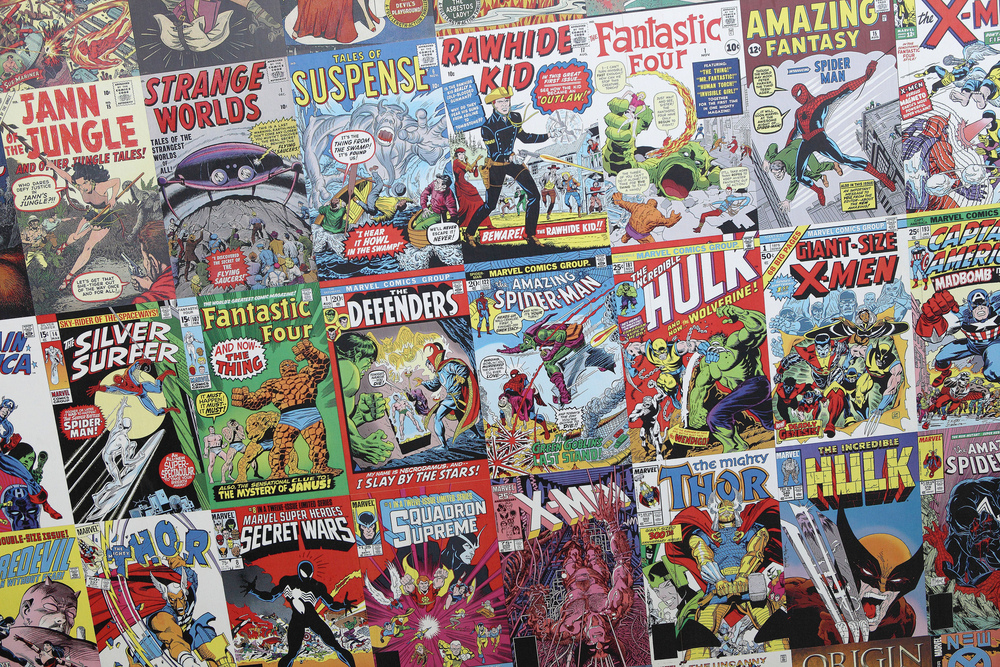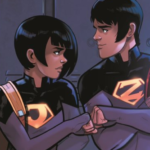
As a former and future academic, I know how tough it is to write about the things you love and are passionate about, especially when you want to maintain objectivity. Bias is annoying, but it affects how we view and interact with our favourite characters, stories, and experiences. My problem becomes tenfold when I am writing about my favourite characters like Loki and Spider-Man. Add to that shipping or social equity (like racism or feminism) and my brain goes to mush.

I sometimes become so passionate that I feel my limbs vibrate and my heart’s palpitation increase. Therefore, I wanna share my methodology in hopes that whoever is struggling out there has a way to express themselves!
During my master’s dissertation, I chose to write about female supervillains in superhero comics and their relationship with feminism. I would like to point out that I am super passionate about supervillains, comics, and intersectional feminism, but that would be redundant (read above paragraph).
Let’s just say that it is one of those topics that make me extremely excited. I had to develop some ways that could help me write objectively.
To minimise the damage of bias, I have developed a few tricks:
-
- When writing about characters I love, I choose topics with which I am not entirely familiar. This creates distance between me and the character.
- When writing about a topic I love, I choose characters or stories that I am unfamiliar with to explore. It feeds my need to know more and helps me distance myself from the topic.
The first two are just simple things one can do to create some distance that they won’t be overwhelmed by their love and passion. I used these tactics. In my dissertation, I chose female super villains that I was unfamiliar with their stories. I knew who they were in general, but not specifically. I spent a great amount of time familiarizing myself with them.
Hence, I was able to create some objectivity because I was looking at them from a researcher/academic point of view and not a fan one.
- I would discuss my work with my peers. You can still be passionate about what you are writing about, but discussion helped me realized the difference between being a fan and being zealous about my writing.I asked people to review my work. I would emphasize on the topic and tone of voice. Not everyone can tell when you are being objective or biased, but they can definitely tell you whether you are being too enthusiastic or not
- I found speed writing then editing helpful:
- Write a thousand words
- Take a break
- Review it
- See how many exclamation points and rants included (create a tally as a joke fodder and share that with friends – I found this practice it hilarious)
- Expand on some of the rants and turn it into an academic observation/argument with research
- I liked creating presentations for my longer essays (more than 6k) and then present it to my peers/friends. While writing the presentation, I ask myself:
- What is the point of my essay?
- Why does it matter?
- Why these particular stories?
- How do I contribute to the wider contemporary conversation?
Using this as a base helps focus my attention objectively to the core of my essay.
- Despite all this effort, it’s okay to add your opinion as long as you emphasize that it is just that or back it up with facts. Essays are not free of opinions, they are laced into the research done and the alleys taken from beginning to end.Acknowledging that we are human helps ease the burden of objectivity and keeps us focused. I am not advocating embracing bias but acknowledging its existence at the very core of our being.
- Fight against your initial biased opinion: Learn as much as you can about the subject matter and don’t stick to the opinions that back you up. I know a lot of pop culture academics are basically reinforcing each other, but you can find ways to agree and disagree with the nuances of their arguments.
- Find sources that are not directly related to the topic or the characters that you chose. Most of the characters/stories that we love won’t necessarily have references readily available. Even if you do find some, having references not directly linked means you looked beyond the expected, honing your skills.
- Do the unexpected, give yourself breaks, and find your own solutions. Every essay comes with its own difficulties: it could be bias or just a mental block. I kept on relating to the character I was writing about and had to address the fact that I view myself as a villain. Every essay is a struggle until you are completely done with it.
These are my tricks! Use them, ignore them, or integrate it with what you do.
As long as I keep seeing academic papers popping up about topics I never imagined were possible, I am happy. Keep writing and interacting because we are affecting how the world views our fandoms and loves beyond the limitation of fandom and fangirl/boy.
If you have any tips, tricks, or ideas on how to remain unbiased, please share it in the comments below or connect with me & Rogues Portal on Twitter!



